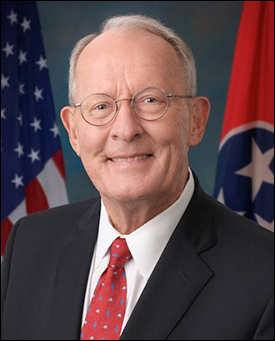By Jim Ellis

Dec. 21, 2019 — Winding down 2018 allows us an opportunity to complete the coming Senate political picture.
As previously covered, the states comprising the early top tier competitive campaigns already include Alabama (Sen. Doug Jones), Arizona special (Senator-Designate Martha McSally), Colorado (Sen. Cory Gardner), Georgia (Sen. David Perdue), Iowa (Sen. Joni Ernst), Maine (Sen. Susan Collins), Mississippi (Sen. Cindy Hyde-Smith), and North Carolina (Sen. Thom Tillis).
Races that could develop or where the incumbent at least has a potential opponent being mentioned are: Kansas (Sen. Pat Roberts), Kentucky (Majority Leader Mitch McConnell), Minnesota (Sen. Tina Smith), New Hampshire (Sen. Jeanne Shaheen), Tennessee (Open: Sen. Lamar Alexander retiring), and Texas (Sen. John Cornyn).
Primary challenges are being speculated upon in Massachusetts (Sen. Ed Markey) and South Carolina (Sen. Lindsey Graham).
Minor candidates are surfacing in Arkansas (Sen. Tom Cotton), Nebraska (Sen. Ben Sasse), and New Jersey (Sen. Cory Booker), but none are expected to develop into major challenges.
So far, the incumbents from the remaining states do not even have potential opponents being cited at this early point in time:
- Alaska (Sen. Dan Sullivan)
- Delaware (Sen. Chris Coons)
- Idaho (Sen. Jim Risch)
- Illinois (Sen. Dick Durbin)
- Michigan (Sen. Gary Peters)
- Montana (Sen. Steve Daines)
- New Mexico (Sen. Tom Udall)
- Oklahoma (Sen. Jim Inhofe)
- Oregon (Sen. Jeff Merkley)
- Rhode Island (Sen. Jack Reed)
- South Dakota (Sen. Mike Rounds)
- Virginia (Sen. Mark Warner)
- West Virginia (Sen. Shelley Moore Capito)
- Wyoming (Sen. Mike Enzi)




